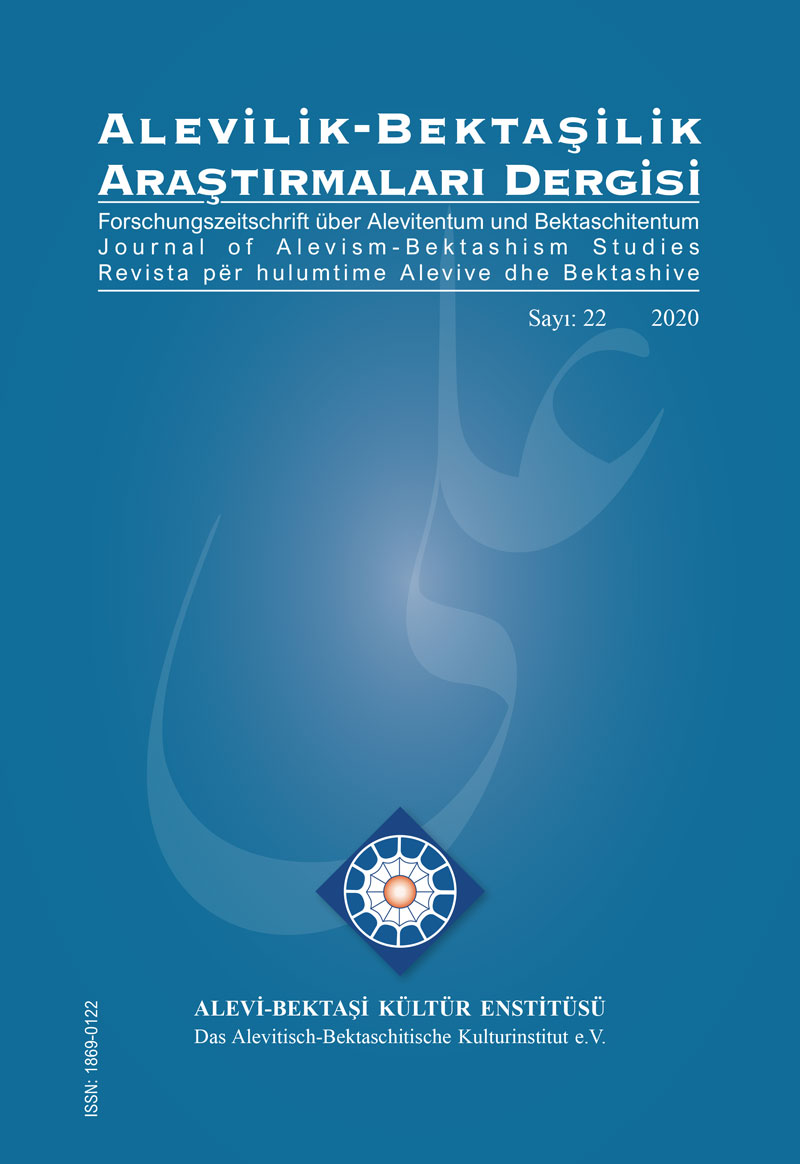Sectarianism, Pragmatism and Negotiation: Ottoman-Nusayri Relations and Changing Status of Nusayris Between the 16th and 19th Centuries
DOI:
https://doi.org/10.24082/2020.abked.291Keywords:
Nusayris, Arab Alevis, Ottoman pragmatism, SyriaAbstract
The policies and approach of the Ottoman central administration to Nusayris differed from period to period. However, the experience of Nusayris under the Ottoman rule has not yet been adequately researched in many aspects. This paper, which emerged from a detailed analysis of Ottoman archival documents, Ottoman court records and researches written in different languages, attempts to fill the gap in this field by analysing the course of the Ottoman-Nusayri relations between the 16th and 19th centuries, the attitude of Ottomans towards Nusayris, and the changing religious status of Nusayris and the main motivations in determining their religious status. Our paper, which proposes that the history of Nusayris under the Ottoman rule should not be pushed under the issues of heresy, opposition, oppression and marginality, reveals that between the 16th and 19th centuries the Ottoman central administration did not implement a continuous and invariable sectarian policy towards Nusayris and that their religious status in that time differed periodically. The Ottoman central administration, which did not implement a permanent policy based on Islamic law principles towards Nusayris, implemented sectarian, pragmatist and negotiating policies in order to control Nusayris. The Ottoman central administration implemented sectarian policy towards Nusayris in the era of Ottoman leadership over the Sunni world and during Ottoman-Safavid conflict, collaborated with Nusayris when Mehmed Ali Pasha and his son Ibrahim Pasha occupied Syria, and implemented negotiating policy during a difficult military, economic and politic period experienced in the mountainous parts of Syria as a result of the Crimean War and the War of ‘93 in the second half of the 19th century. Our paper, which evaluates the changing policies of the Ottoman central administration towards Nusayris within the framework of manageability and real politics, indicates that these policies are the policies that would bring the most benefits considering the conditions of the periods and the power of the Ottomans. In view of these observations, the Ottoman central administration saw Nusayris as a part of the heretic or Muslim citizens depending on general or regional political developments, intercommunal tension, Ottoman pragmatism and Nusayris’ compatibility with the Ottoman regime.








